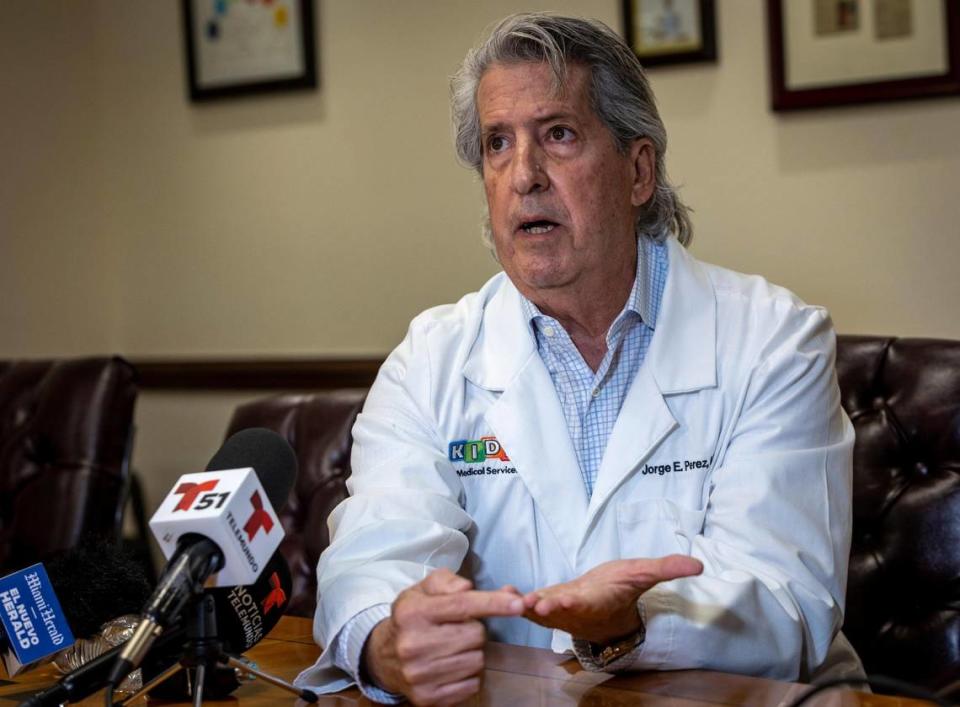A passenger in pain visited the ship’s doctor. Then came baby, earlier than expected
Patrina Ross was cruising through the Caribbean when she had to cut her vacation short.
She was flown to Miami on Friday with a special memento from the trip: her new baby boy.
The new mom’s baby was born prematurely, at about 22 weeks, on board Royal Caribbean International’s Jewel of the Seas during a seven-night journey through the Caribbean.
The cruise departed from Port Canaveral in Florida on Nov. 27. On Tuesday, Nov. 29, discomfort sent Ross, a 28-year-old from Melbourne, Florida, to the ship’s doctor.
After examining her, the doctor had a diagnosis: Ross was in labor.
While cruise ships have an infirmary, or medical center, they’re usually equipped to deal with more common travel problems like upset stomachs (hello, seasickness), colds, COVID, scrapes, and, of course, all the people who forgot their medication back on land.
Delivering a premature newborn? That isn’t the routine by far.
But the baby was coming. And it was all hands on deck.

Born at sea
Royal Caribbean’s senior physician Dr. Alif Patilla, with the rest of the Jewel’s medical team, quickly got to work, transforming the ship’s infirmary into a labor room.
And they called in some help from Dr. Jorge Perez, neonatal specialist and founder of KIDZ Medical Services, a pediatric medical practice in South Florida. He’s the medical director of South Miami Hospital’s Neonatal Intensive Care Unit and Neonatal Transport Team.
“In today’s environment, we do save 22-weekers [pre-mature babies] but have never had to save a 22-weeker in the sea or a cruise ship,” Perez said. “For your average physician to care for or resuscitate a baby that probably fits in the palm of your hand is an incredible task.”
A full-term for a baby is around 37 weeks.
Perez was on the phone with the ship’s doctor all night, guiding the crew on how to turn an adult ventilator into one for a premature baby and how to mix antibiotics and give medicine to the newborn.

Perez didn’t know if the baby would survive, given the lack of equipment on board, and was giving the ship doctor “comfort measures.”
“I didn’t know how long we were going to be able to keep this baby alive,” he said. “I applaud them because they did an incredible job just following the instructions that I was giving them over a phone call.”
Without re-configuring the medical machines and successfully following Perez’s instructions, he says the baby probably wouldn’t have survived more than an hour or two.
The baby was born, weighing 2.2 pounds, on the ship’s way to Jamaica.
“The people of Royal Caribbean — shoreside and crew — are truly best in class,” said Dr. Calvin Johnson, chief medical officer of Royal Caribbean Group. “This week it was proven again with the incredible delivery of this baby at sea.”
Long road ahead
Once the ship arrived to Ocho Rios, Jamaica, Ross and her bundle of joy were taken to St. Ann’s Bay Hospital, where the baby was admitted to the neonatal intensive care unit.
The pair were flown in Friday afternoon to Nicklaus Children’s Hospital near South Miami.
Perez said the baby arrived in “incredible condition,” and is able to breathe on his own. His condition is critical but stable.
“He’s going to have a long way,” Perez said, “before being discharged from the hospital.”

 Yahoo Movies
Yahoo Movies 
